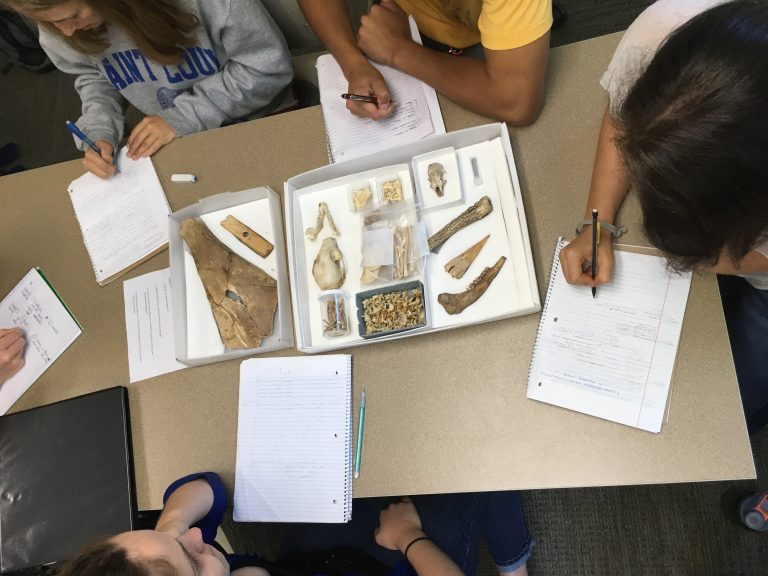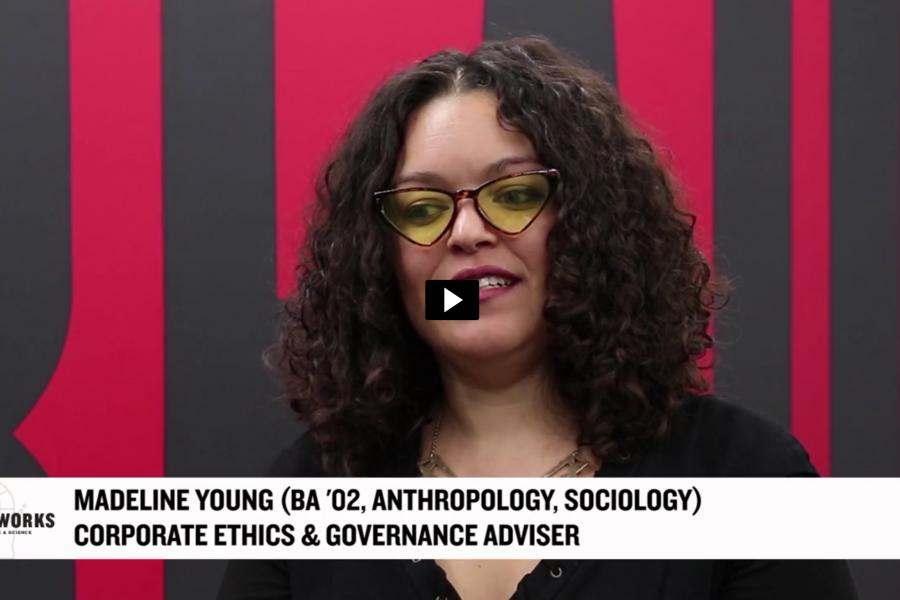Video of Alum Madeline Young '02, double majored in Anthropology and Sociology.
Read moreStudents who major in anthropology become familiar with the ways of life and cultures of societies throughout the world, both those currently existing and those known only from the archaeological record. They also explore the biological complexity of humanity and comparative perspectives from nonhuman primate behavior, ecology, and evolution. Through their studies, students often develop specialized interests in a particular area of the world, in the relationship between archaeological and historical materials, in the relationship between culture and behavior, or in the mutual influences of biology and culture. Anthropology helps students develop strong observational and critical-thinking skills and refine their abilities to express complex ideas through oral presentations and writing – skills that are important for success in many careers. Through the study of cultures around the globe and at home in the US, anthropology majors understand diversity and communicate effectively across cultural boundaries. Students of anthropology not only acquire basic information about Homo sapiens as a thinking, creative animal, but also explore the diversity of human culture. They encounter ideas that may challenge their own beliefs or behaviors and problems of interpretation for which there are no “right” answers, only probable answers. Students who find complexity, uncertainty, and challenges to their beliefs exciting will find themselves well suited to a major in anthropology. The major exposes students to a wide range of anthropological topics and information. It is an exploration, a route toward discovering a student’s own interests, not toward specializing them. While some specialization—in biological anthropology, cultural anthropology, or archaeology—is possible, basic work in all three fields is required. There are no language requirements for a major in anthropology, but language can be a tool of great importance to the anthropologist. Students considering graduate work who are interested in a particular area of the world should begin work on a language appropriate to that area. Studying other languages, especially non-European languages, can open the door to many opportunities for future work. In addition to specific languages, a basic knowledge of linguistics and the techniques of working with unwritten languages is strongly recommended.
If you are interested in declaring an Anthropology Major, or learning more about it, please contact the Undergraduate Advisor in Anthropology, Professor Mark Kenoyer at jkenoyer@wisc.edu. If you are interested in the Archaeology Certificate, please contact Professor Sissel Schroeder at sissel.schroeder@wisc.edu. Links to the declaration forms for the Anthropology Major and Archaeology Certificate are below.

